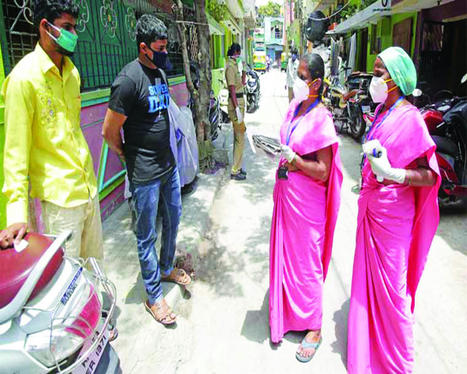India features close to the bottom in international rankings in most health indices. The Covid-19 pandemic has exposed the fundamental problems plaguing the healthcare system, be it physical infrastructure, manpower or health management.
At least two-thirds of India’s 1.3 billion people depend on the public healthcare system, but the country has only 8.5 hospital beds and eight physicians per 10,000 people.
On account of the burgeoning costs of private healthcare and the inability of public healthcare to respond to the needs of the huge population, India’s remote villages have been traditionally relying on indigenous health systems of basic care supported by community agents.
Community health workers are greatly improving the life of millions of people where doctors and nurses don’t go. Community healthcare providers, like paramedics, are taught essential services such as maternal and child healthcare. The strategy is to move beyond doctors and nurses and shift down to lay people, peers and family.
An Accredited Social Health Activist — or ASHA, an acronym that translates as “hope” in Hindi — is the Government’s recognised health worker who is usually the first port of call for any health-related demands in rural India, where healthcare facilities are scant and medical professionals can be hard to find.
As a result, many Indian communities, especially women and children, rely on ASHAs for primary healthcare.
In many villages there are 1,000 to 1,500 people in each ASHA’s care.
Any visitor to a village where these community healthcare models are the primary drivers of awareness will marvel at the ability of the ASHAs to connect with and explain things to women. Their lack of a degree is not a handicap, it is an advantage. They understand how to reach the people who most need reaching out to: The illiterate, vulnerable and poor village women. They know how they think and live, because they are one of them.
The efficacy of the ASHAs can be seen in the impact they have made on India’s healthcare indicators. Their efforts have contributed to a 59.9 per cent decline in maternal mortality and a 49.2 per cent decline in infant mortality. Under their aegis, immunisation rates for the country increased from 44 per cent to 62 per cent and institutional deliveries doubled from 39 per cent to 78 per cent.
While ASHA workers have the potential to play a wider role in rural healthcare, their service conditions are pathetic and need to be improved
read the original unedited article at https://www.dailypioneer.com/2021/columnists/ashas-need-a-ray-of--hope-in-their-lives.html



 Your new post is loading...
Your new post is loading...








Community workers are the most effective mechanism to improve Rural Healthcare. They should be constantly trained and cared for. The success of Community Health programs in a number of countries such as Nigeria, Ghana, India have all been due to the effectiveness of empowering people from local communities and training them on specific programs like Maternal Health, Child Care, Malaria, TB, Vaccination programs to ensure they become the go to person for those programs within the local community.